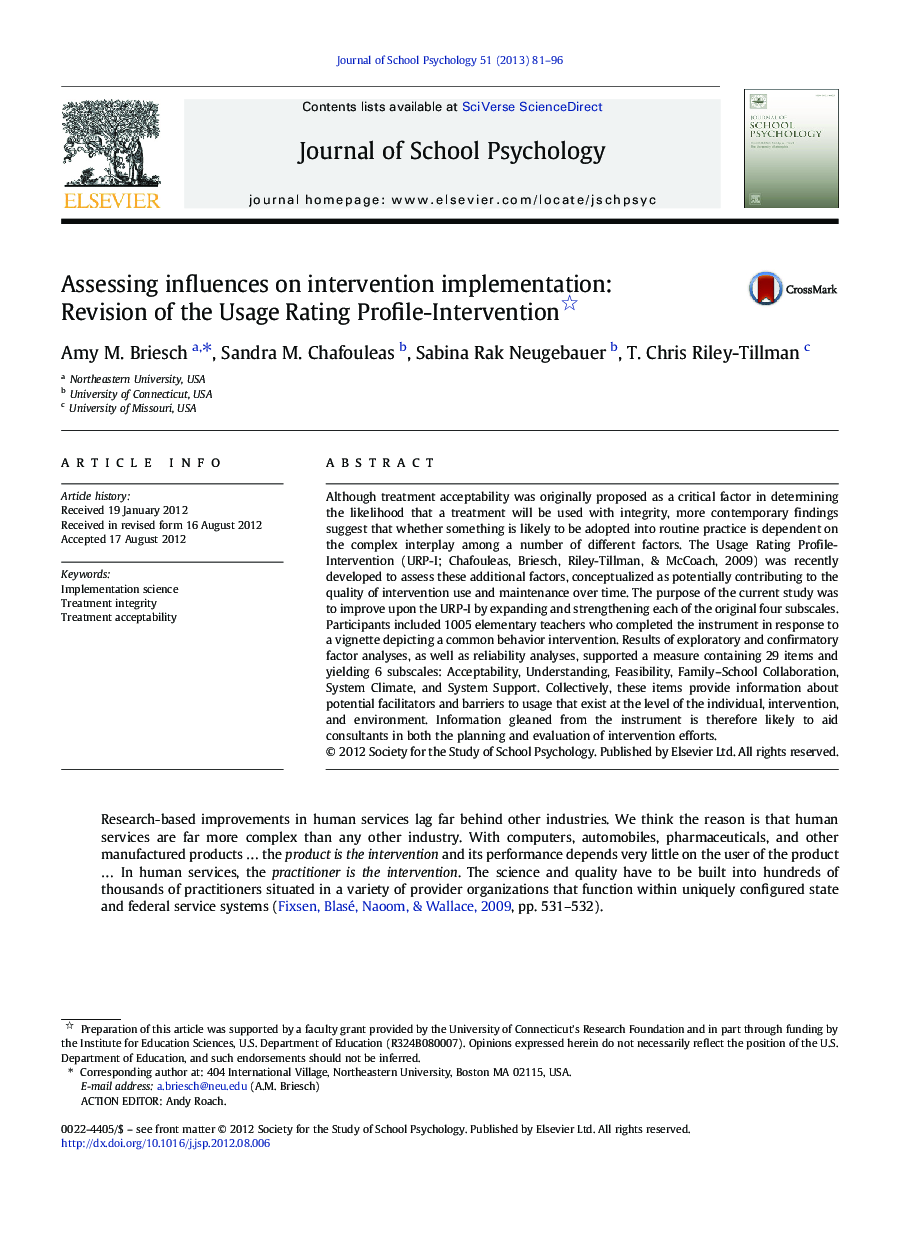| Article ID | Journal | Published Year | Pages | File Type |
|---|---|---|---|---|
| 363703 | Journal of School Psychology | 2013 | 16 Pages |
Although treatment acceptability was originally proposed as a critical factor in determining the likelihood that a treatment will be used with integrity, more contemporary findings suggest that whether something is likely to be adopted into routine practice is dependent on the complex interplay among a number of different factors. The Usage Rating Profile-Intervention (URP-I; Chafouleas, Briesch, Riley-Tillman, & McCoach, 2009) was recently developed to assess these additional factors, conceptualized as potentially contributing to the quality of intervention use and maintenance over time. The purpose of the current study was to improve upon the URP-I by expanding and strengthening each of the original four subscales. Participants included 1005 elementary teachers who completed the instrument in response to a vignette depicting a common behavior intervention. Results of exploratory and confirmatory factor analyses, as well as reliability analyses, supported a measure containing 29 items and yielding 6 subscales: Acceptability, Understanding, Feasibility, Family–School Collaboration, System Climate, and System Support. Collectively, these items provide information about potential facilitators and barriers to usage that exist at the level of the individual, intervention, and environment. Information gleaned from the instrument is therefore likely to aid consultants in both the planning and evaluation of intervention efforts.
